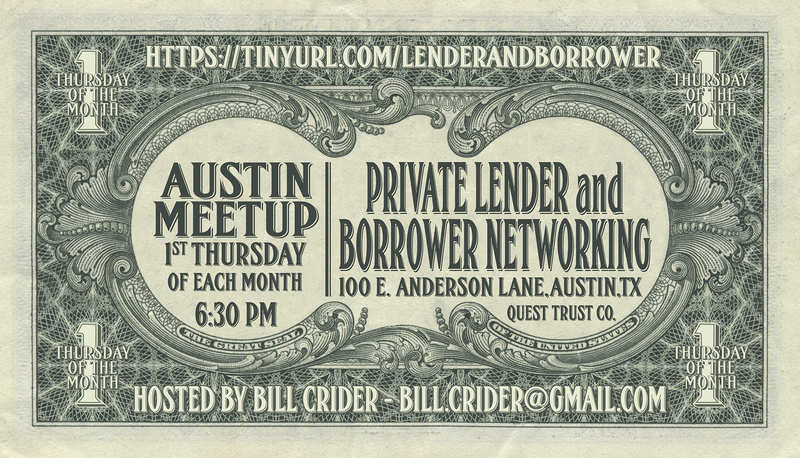@Dante Feria Here you go:
1 Schedule inspection
2 Attend inspection and fill out the repair list
4 Send earnest money check to escrow company
5 Send option money check to escrow company
3 If you are satisfied with the results of the inspection, REA will notify your lender and tell them to order your appraisal if he/she has not done so already.
6 It usually takes 3-5 days from the date your lender orders the appraisal for the appraiser to schedule and conduct the appraisal.
7 The appraisal takes 3-10 days for the results to be returned to the Lender and for us to know the number.
8 During this time your lender should have all of the required documents. It’s best to check in with your lender to confirm he/she has everything they need.
9 "You should call a local insurance company to get homeowners insurance quotes at this time. It's best you email your insurance agent a copy of the MLS Listing of the home you are purchasing.
- Add Property Insurance
- Add to Umbrella policy insurance"
10 When you’re about 5 days away from closing you should call the utility companies and ask to “Transfer Utilities” for the date of your closing. You may not be able to transfer / turn on water until after you have closed on your home.
11 You should do a “Final Walk Through” of the property you are purchasing within 24 hours before closing to confirm the property is in the same condition that it was in when you agreed to purchase the property and that all inspection required repairs have been completed.
12 On the day of closing, all signers will need to bring their driver’s license or Passport and a Cashiers Check in the amount you are required to bring to closing. Your lender will be the one to give you the amount you will need to bring to closing. The Cashiers Check should be made out to the closing attorney. This is very important.
13 If your name is on the purchase agreement, you will need to be present at the closing or have signed a power of attorney for someone to sign on your behalf. If you are doing a power of attorney, you will need to notify our Client Care Coordinator and your lender at least seven days prior to closing.
14 The day before closing or sometime the day of closing, you should communicate with your lender because they will need to tell you exactly how much you money need to bring to closing. Don’t be alarmed or upset if you receive this number the day of closing or even an hour or two before closing. This is very common. For whatever reason, the banks often wait until the last minute to get their paperwork to the closing attorney and to their gather final numbers. It’s not your lenders fault; there is a lot of coordination in the final hours between Closing Attorney and lender preparing all of the documentation and Closing Disclosure Statement.
15 Closings are typically done Monday through Friday between 9:00 a.m. and 5:00 P.M. The closing should around 1 hour depending on if everyone is on time and whether or not the loan funds right away. We recommend that you plan at least a 3 hour window for closing in case there are any unforeseen delays. If this is a late closing say 3:00 or later, there is a very good chance it will not fund until the next day. If this happens you may NOT get keys at that time and will have to wait until the loan funds and the Closing Attorney receives the funds.
What to check the day before closing
16 Call the closing agent to confirm the date and location of the closing
17 Request a preliminary or final closing statement if there is one
18 Review closing figures for any mistakes
19 Confirm insurance, deeds, trust deeds, and mortgage documents are correct
20 You should do a “Final Walk Through” of the property you are purchasing within 24 hours before closing to confirm the property is in the same condition that it was in when you agreed to purchase the property and that all inspection required repairs have been completed.
After Closing
21 Check property insurance (check policy documents, billing and auto-pay
22 Confirm addition to Umbrella policy insurance
23 Check on Title Registration, Taxes, Insurance and Home Warranty - 30 days after closing
24 If leasing, then set up a "Landlord" account which defaults to you to avoid hooking up utilities fees between tenants
If you are taking over tenants, during option period also:
Check public records for any liens against property and/or owner
Check owner on social websites
Check public records for any liens against tenant (once application is received)
Check tenant on social websites (once application is received)
"Receive and carefully review the following documents:
- the tenant's application
- a copy of the current lease - How well does it align with yours and when does it expire? Is the tenant a relative of the seller? Contact tenant and verify lease and condition form.
- a copy of the inventory condition form
- the tenant's payment history (deposit slips, etc.) records
- a copy of the picture ID of each tenant and person over 18y.o. living in the house"
Get clarification on the house inventory
After option period:
Contact tenant and verify lease and condition form + inform them that after close date to make checks to you
Advise title of security deposit and pro-rated rent transfer
After closing
Inform tenants to make checks to you from now on











